
Kolombangara Island: The Pristine Jewel of the Solomon Islands
Kolombangara Island, a circular volcanic island in the Solomon Islands, is a dream destination for nature enthusiasts and adventure seekers. Known for its stunning natural beauty, the island is enveloped in lush rainforests and surrounded by crystal-clear waters, offering breathtaking views at every turn. The island's serene environment makes it an ideal escape from the hustle and bustle of daily life. One of the island's highlights is the Kolombangara Volcano, an extinct volcano that forms the island's central peak. At 1,770 meters, it offers a challenging yet rewarding hike for those looking to immerse themselves in the island's natural splendor. Trekking through the dense rainforest, visitors can encounter a myriad of endemic flora and fauna, making the journey as fascinating as the destination itself. Marine life around Kolombangara Island is equally impressive. The island's surrounding waters are perfect for snorkeling and diving, with vibrant coral reefs teeming with colorful fish and other marine creatures. The coastal areas also offer opportunities for kayaking and paddleboarding, allowing tourists to explore the island from a different perspective. Cultural experiences are also a significant part of visiting Kolombangara Island. The local communities are known for their hospitality and rich traditions. Visitors can experience traditional dances, music, and crafts, providing a glimpse into the island's vibrant cultural heritage.
Local tips in Kolombangara Island
- Carry insect repellent as the island's tropical climate attracts mosquitoes.
- Wear comfortable hiking shoes for trekking the Kolombangara Volcano.
- Respect local customs and traditions when interacting with the island's communities.
- Bring waterproof gear for marine activities and unexpected tropical showers.
- Plan ahead and arrange for local guides to enhance your hiking and cultural experiences.
Kolombangara Island: The Pristine Jewel of the Solomon Islands
Kolombangara Island, a circular volcanic island in the Solomon Islands, is a dream destination for nature enthusiasts and adventure seekers. Known for its stunning natural beauty, the island is enveloped in lush rainforests and surrounded by crystal-clear waters, offering breathtaking views at every turn. The island's serene environment makes it an ideal escape from the hustle and bustle of daily life. One of the island's highlights is the Kolombangara Volcano, an extinct volcano that forms the island's central peak. At 1,770 meters, it offers a challenging yet rewarding hike for those looking to immerse themselves in the island's natural splendor. Trekking through the dense rainforest, visitors can encounter a myriad of endemic flora and fauna, making the journey as fascinating as the destination itself. Marine life around Kolombangara Island is equally impressive. The island's surrounding waters are perfect for snorkeling and diving, with vibrant coral reefs teeming with colorful fish and other marine creatures. The coastal areas also offer opportunities for kayaking and paddleboarding, allowing tourists to explore the island from a different perspective. Cultural experiences are also a significant part of visiting Kolombangara Island. The local communities are known for their hospitality and rich traditions. Visitors can experience traditional dances, music, and crafts, providing a glimpse into the island's vibrant cultural heritage.
When is the best time to go to Kolombangara Island?
Unmissable attractions to see
Esorolando Point
Explore the stunning coastal views and rich marine biodiversity at Esorolando Point, a hidden gem in the Solomon Islands.
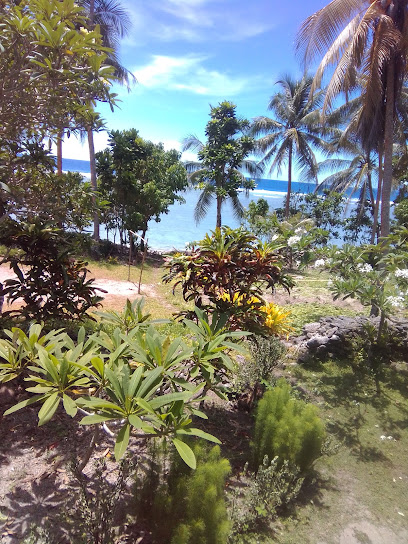
Kerukeru Island
Discover the untouched paradise of Kerukeru Island in the Solomon Islands, where pristine beaches and rich culture await every traveler.
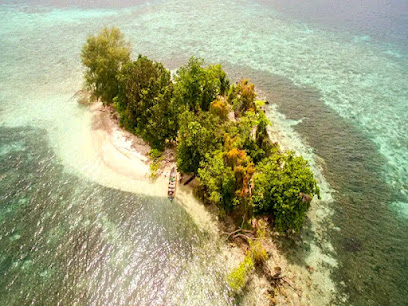
Poroi
Experience the serene beauty and rich culture of Poroi Village on Ranongga Island, a hidden gem in the Solomon Islands.

Pallone Village
Experience the vibrant culture and stunning landscapes of Pallone Village in the Solomon Islands, an authentic gem for every traveler.

Markets, malls and hidden boutiques
Noro Market
Discover the heart of Noro at Noro Market, where local culture, fresh produce, and unique crafts come together in a vibrant shopping experience.
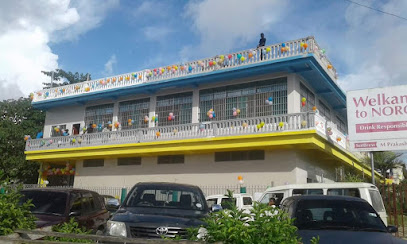
Gold Shing Trading Ltd
Discover unique local crafts and immerse yourself in the vibrant culture of Gizo at Gold Shing Trading Ltd, a must-visit shopping destination.

penuna
Discover the tranquil beauty of Penuna on Ranongga Island, a hidden paradise in the Solomon Islands, perfect for nature and culture enthusiasts.

Ibibu Bread Shop
Discover the delightful flavors of Munda at Ibibu Bread Shop, where freshly baked bread and local specialties await every visitor.
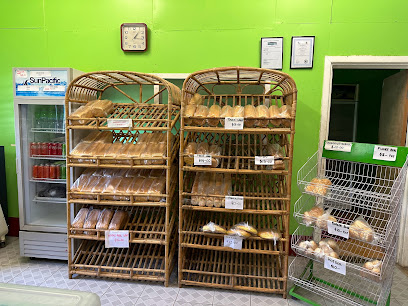
Wonderland Cafe
Discover Wonderland Cafe in Munda for a unique coffee experience with local flavors and a welcoming atmosphere.
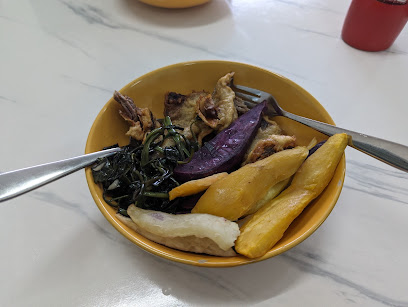
Jononi Enterprise
Discover everyday essentials and unique local products at Jononi Enterprise, your go-to convenience store in Gizo, Solomon Islands.
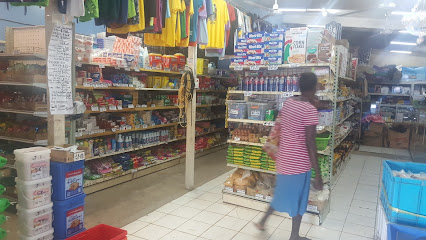
Coffee Station
Experience the rich flavors of local coffee at Coffee Station in Gizo, where every sip tells a story of the Solomon Islands.
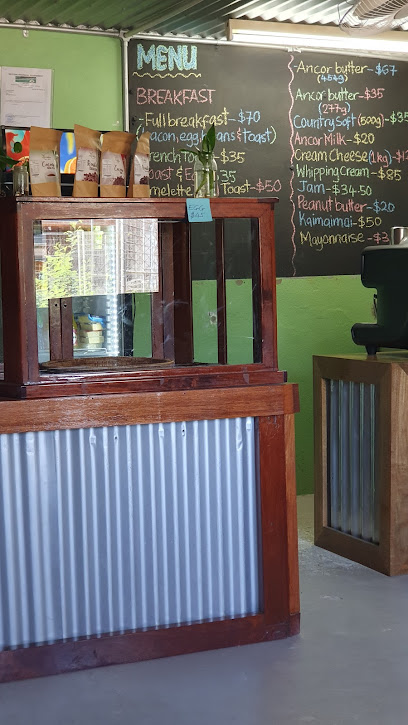
Bales & Beyond
Explore the vibrant clothes market of Bales & Beyond in Gizo, where local fashion meets unique cultural treasures.
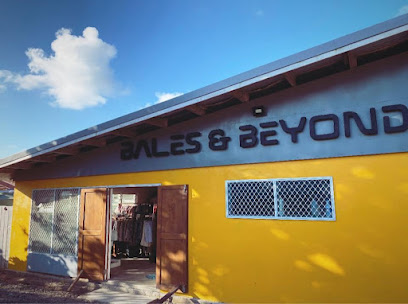
Solomon Brothers Bottle Shop
Explore Solomon Brothers Bottle Shop in Munda for an authentic taste of local and international beverages in a welcoming atmosphere.
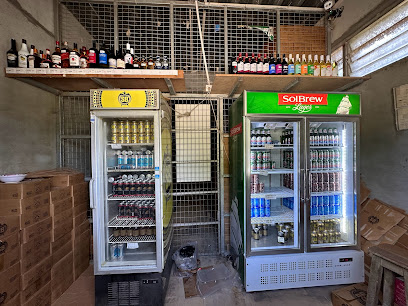
KFPL Ringgi Office
Discover sustainable timber solutions and local forestry practices at KFPL Ringgi Office in the Solomon Islands.
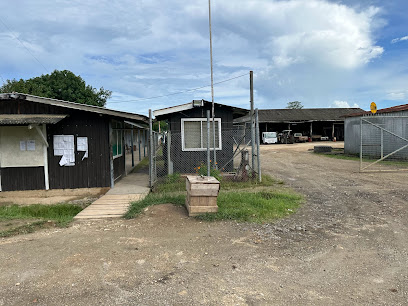
Gizo Daily Bread Kitchen
Discover the heart of Gizo at Daily Bread Kitchen, where fresh baked goods and local flavors come together to create a memorable culinary experience.

OK Trading ltd
Experience local life and culture at OK Trading Ltd, the charming general store in Batuna, offering a variety of unique goods and essentials.

Palpha Shop
Explore local flavors and fresh produce at Palpha Shop, the perfect grocery destination for tourists in Ringgi.
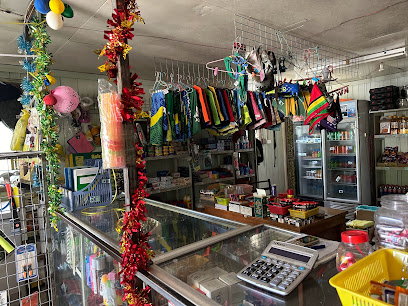
Sunshine shop
Explore the Sunshine Shop in Gizo for local crafts, souvenirs, and a true taste of Solomon Islands culture.

SKV
Explore the vibrant fashion scene at SKV in Gizo, where local artistry meets contemporary style for an unforgettable shopping experience.

Essential bars & hidden hideouts
Heritage Park Hotel
Discover comfort and hospitality at Heritage Park Hotel, a serene haven in Honiara, where relaxation meets adventure in the Solomon Islands.
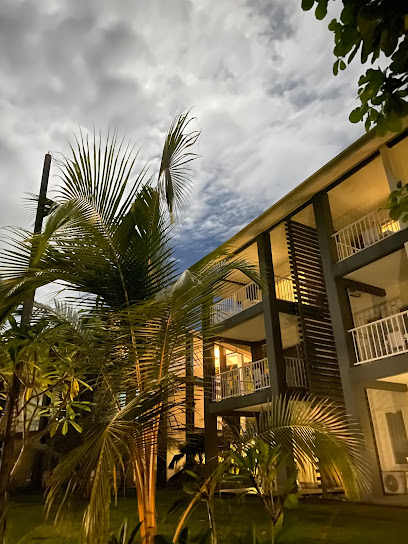
Breakwater Cafe
Enjoy a delightful culinary experience with stunning views at Breakwater Cafe in Honiara, Solomon Islands.
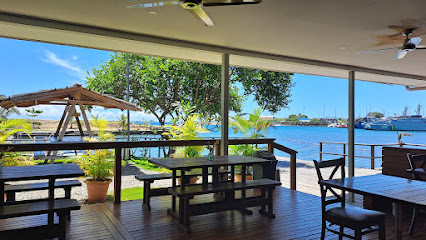
Coral Sea Resort & Casino
Discover paradise at Coral Sea Resort & Casino, where relaxation meets excitement in the heart of Honiara.

King Solomon Hotel
Discover comfort and cultural richness at King Solomon Hotel, your ideal stay in Honiara, Solomon Islands.

Pacific Casino Hotel
Discover the perfect blend of comfort and adventure at Pacific Casino Hotel, your gateway to the enchanting Solomon Islands.

The Coffee Bar
Discover the local taste at The Coffee Bar in Honiara, where every sip of coffee tells a story of the Solomon Islands.
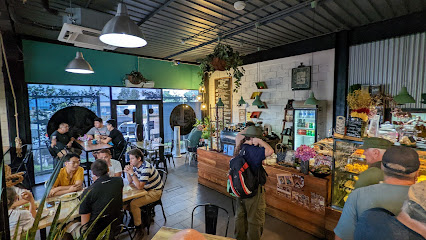
Tenkai Sushi Cafe
Discover authentic Japanese flavors at Tenkai Sushi Cafe in Honiara, where fresh ingredients and culinary artistry meet.
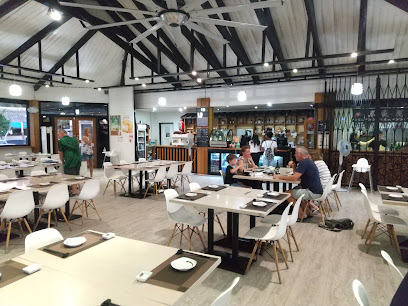
Palm Sugar
Experience the essence of Honiara at Palm Sugar, where local flavors meet a cozy café atmosphere in the heart of the Solomon Islands.
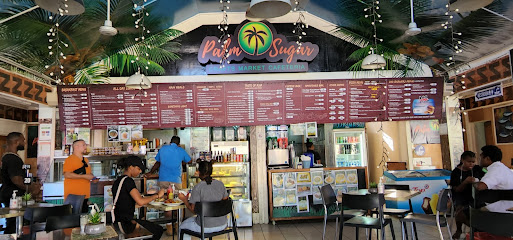
Honiara Hotel
Enjoy a memorable stay at Honiara Hotel, the perfect accommodation for those exploring the captivating beauty of the Solomon Islands.

Fatboys Resort
Discover the enchanting beauty and culinary delights at Fatboys Resort in Gizo, a tropical paradise perfect for relaxation and adventure.

Agnes Lodge
Discover the charm of Agnes Lodge in Munda, a peaceful paradise perfect for exploring the natural wonders of the Solomon Islands.

Gizo Hotel
Discover the tranquil charm of Gizo Hotel, your peaceful retreat in the heart of the Solomon Islands, perfect for relaxation and adventure.
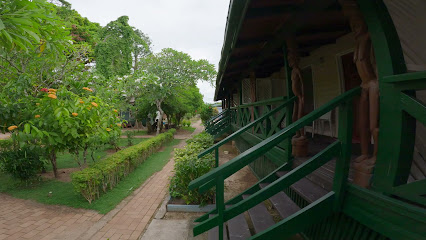
Imagination Island Coral Reef Resort
Experience the serene beauty and adventure of Imagination Island Coral Reef Resort in Gizo, where luxury meets nature in a stunning paradise.

Mambo Juice!
Discover the vibrant flavors of Honiara at Mambo Juice — your go-to spot for fresh juices, gourmet coffee, and delightful sandwiches.
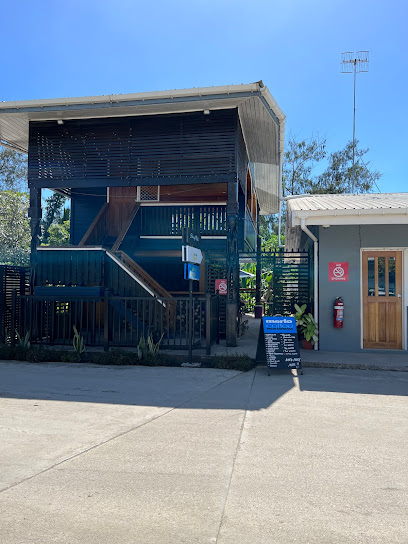
Monarch
Experience the vibrant flavors of Honiara at Monarch, a premier grill restaurant offering fresh local ingredients and a cozy atmosphere.
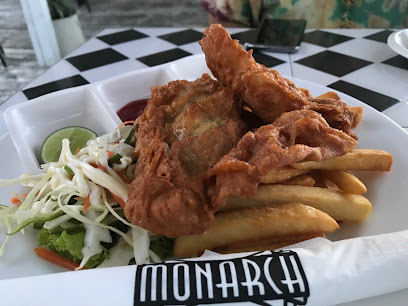
Local Phrases about Kolombangara Island
-
- HelloHalo
[ha-loh] - GoodbyeTata
[ta-ta] - YesAe
[ae] - NoKao
[ka-o] - Please/You're welcomeTangio
[tan-gi-o] - Thank youTankiu
[tan-kiu] - Excuse me/SorrySori
[so-ri] - How are you?Oa rini?
[o-a ri-ni] - Fine. And you?Hapi. E o?
[ha-pi. e o] - Do you speak English?Ou save toktok long Inglish?
[o-u sa-ve tok-tok long ing-glish] - I don't understandMi no save olsem
[mi no sa-ve ol-sem]
- HelloHalo
-
- I'd like to see the menu, pleaseMi laekem lukim menu, plis
[mi la-e-kem lu-kim me-nu, plais] - I don't eat meatMi no save kaikai meet
[mi no sa-ve kai-kai meet] - Cheers!Vananga!
[va-nan-ga] - I would like to pay, pleaseMi laekem pei, plis
[mi la-e-kem pei, plais]
- I'd like to see the menu, pleaseMi laekem lukim menu, plis
-
- Help!Helpem!
[help-em] - Go away!Go lusim!
[go lu-sim] - Call the Police!Kolem Polis!
[ko-lem po-lis] - Call a doctor!Kolem dokta!
[ko-lem dok-ta] - I'm lostMi lusim
[mi lu-sim] - I'm illMi sik
[mi sik]
- Help!Helpem!
-
- I'd like to buy...Mi laekem faendem...
[mi la-e-kem fa-en-dem] - I'm just lookingMi jes lukluk
[mi jes luk-luk] - How much is it?Hao muasim ia?
[hao mu-a-sim ia] - That's too expensiveIu nao ia ia plen sasale
[iu na-o ia ia plen sa-sa-le] - Can you lower the price?Iu save kam dongem prais?
[iu sa-ve kam dong-em prais]
- I'd like to buy...Mi laekem faendem...
-
- What time is it?Hao long taem ia?
[hao long ta-em ia] - It's one o'clockWan o'klak
[wan o-klak] - Half past (10)Haf pasten
[haf pas-ten] - MorningMonin
[mo-nin] - AfternoonApinun
[a-pi-nun] - EveningIvinin
[i-vi-nin] - YesterdayDei pasim
[de-i pa-sim] - TodayDei
[de-i] - TomorrowTumoro
[tu-mo-ro] - 1Wan
[wan] - 2Tu
[tu] - 3Tri
[tri] - 4Fo
[fo] - 5Faiv
[faiv] - 6Sikis
[si-kis] - 7Seven
[se-ven] - 8Eit
[eit] - 9Nain
[nain] - 10Ten
[ten]
- What time is it?Hao long taem ia?
-
- Where's a/the...?Hao long ...?
[hao long] - What's the address?Hao long adris?
[hao long ad-ris] - Can you show me (on the map)?Iu save soem mi (long maep)?
[iu sa-ve so-em mi long maep] - When's the next (bus)?Hao long niu (bas)?
[hao long ni-u bas] - A ticket (to ....)Wan tiket (go ...)
[wan ti-ket go]
- Where's a/the...?Hao long ...?
History of Kolombangara Island
-
Kolombangara Island, like many of the Solomon Islands, was originally inhabited by the Melanesian people. The indigenous communities thrived on the island, developing a rich and unique culture deeply intertwined with their natural environment. They practiced traditional fishing, agriculture, and crafting, passing down their knowledge and customs through generations. The island's name, 'Kolombangara,' translates to 'Water Lord' in the local language, reflecting the deep connection the people had with the surrounding ocean and rivers.
-
The first recorded European contact with Kolombangara Island occurred in the 16th century when Spanish explorers navigated the Solomon Islands. However, it wasn't until the late 19th and early 20th centuries that significant European influence began to take hold. The British established a protectorate over the Solomon Islands in 1893, incorporating Kolombangara into their colonial administration. During this period, the island saw the establishment of copra plantations and other colonial enterprises, which significantly impacted the local economy and way of life.
-
Kolombangara Island played a crucial role during World War II, particularly in the Pacific Theater. The Battle of Kolombangara, fought in July 1943, was a significant naval engagement between Allied and Japanese forces. The island served as a strategic point for both sides, resulting in intense fighting. The remnants of this period are still visible today, with numerous war relics and sunken ships around the island, serving as poignant reminders of the island's tumultuous past.
-
After World War II, Kolombangara Island, along with the rest of the Solomon Islands, experienced a gradual transition from colonial rule to self-governance. The push for independence gained momentum in the mid-20th century, leading to the establishment of the Solomon Islands as an independent nation in 1978. Kolombangara played its part in this national movement, contributing to the political and social changes that shaped the modern Solomon Islands.
-
Today, Kolombangara Island is a vibrant blend of traditional culture and modern influences. The island maintains its rich cultural heritage through festivals, traditional dances, and local crafts. Visitors can explore the island's lush landscapes, including its volcanic peak, dense rainforests, and pristine rivers. The island's communities continue to celebrate their history and traditions while embracing contemporary advancements, making Kolombangara a unique destination that offers a deep connection to both its past and present.
Kolombangara Island Essentials
-
Kolombangara Island is located in the Solomon Islands. The nearest international airport is Honiara International Airport (HIR) on Guadalcanal Island. From Honiara, you can take a domestic flight to Munda Airport (MUA) on New Georgia Island, followed by a boat transfer to Kolombangara Island. Alternatively, you can take a direct ferry from Honiara to Kolombangara Island, which is a longer but scenic journey.
-
Kolombangara Island is relatively small, and the main mode of transportation is by boat or on foot. Local boats, known as 'canoes,' are commonly used to travel between villages and other nearby islands. There are also a few dirt roads suitable for 4x4 vehicles, which can be hired for specific trips. Walking is a great way to explore the island's lush landscapes and local communities.
-
The official currency in the Solomon Islands is the Solomon Islands Dollar (SBD). Credit cards are not widely accepted on Kolombangara Island, so it is essential to carry sufficient cash. ATMs are scarce, and it is advisable to withdraw cash in Honiara before traveling to Kolombangara. Some larger lodges and guesthouses may accept major foreign currencies, but this should not be relied upon.
-
Kolombangara Island is generally safe for tourists. However, like any destination, it's important to take standard precautions. Avoid walking alone at night in unfamiliar areas and always keep an eye on your belongings. There are no specific high-crime areas targeting tourists, but it is always best to stay vigilant and aware of your surroundings. Petty theft can occur, so keep valuables secure.
-
In case of emergency, dial 999 for immediate assistance. The island has limited medical facilities, so it is recommended to have comprehensive travel insurance that covers medical emergencies. For serious health issues, you may need to be evacuated to Honiara or another island with better medical facilities. Always carry a basic first aid kit and any necessary medications. Local police can assist in emergencies, and it is wise to know the location of the nearest police station.
-
Fashion: Do dress modestly, especially in villages. Lightweight, breathable clothing is recommended due to the tropical climate. Avoid wearing revealing clothing. Religion: Do respect local customs and traditions. Some areas may have specific cultural practices, so it is best to ask locals if you are unsure. Public Transport: Do be respectful and patient when using local boats or 4x4 services. Greetings: Do greet people with a smile and a friendly wave. Handshakes are also common. Eating & Drinking: Do try local delicacies and accept food offerings graciously. Don't refuse hospitality, as it is considered impolite.
-
To experience Kolombangara Island like a local, visit the local markets where you can buy fresh produce and traditional Solomon Islands crafts. Engage with locals, as they are often friendly and eager to share stories about their culture and history. Don't miss the opportunity to explore the island's natural beauty, including its volcanic landscapes, lush rainforests, and pristine beaches. Participate in community events and traditional ceremonies if the opportunity arises for a more immersive experience.
Nearby Cities to Kolombangara Island
-
Things To Do in Taro Island
-
Things To Do in Arawa
-
Things To Do in Yandina
-
Things To Do in Honiara
-
Things To Do in Tulagi
-
Things To Do in Auki
-
Things To Do in Kokopo
-
Things To Do in Rabaul
-
Things To Do in Alotau
-
Things To Do in Kimbe
-
Things To Do in Kavieng
-
Things To Do in Lata
-
Things To Do in Port Moresby
-
Things To Do in Lae
-
Things To Do in Madang




